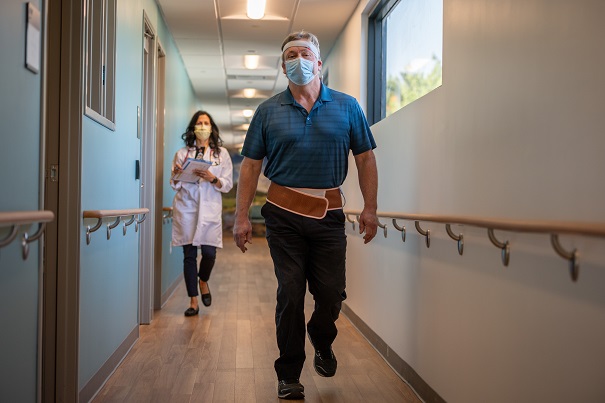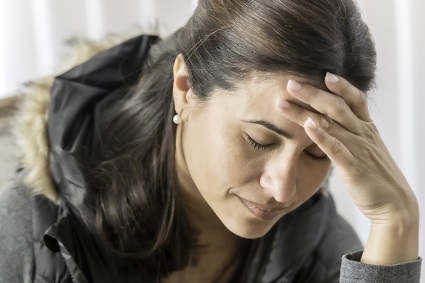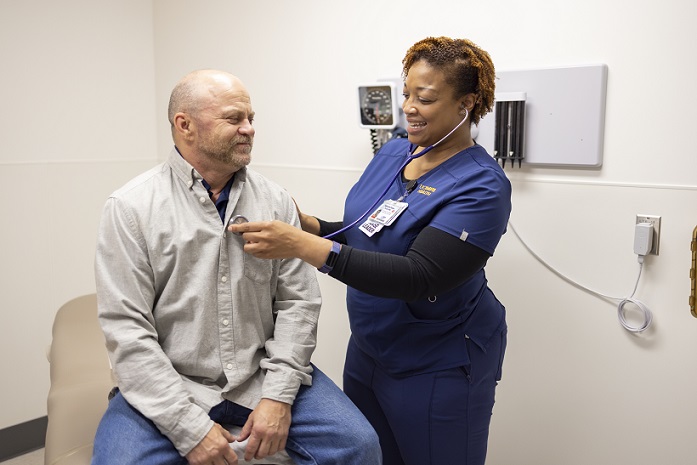COVID-19 Treatments
We treat the immediate and long-term effects of COVID-19 using a range of research-based medications and therapies.
Medically reviewed by Dean Blumberg, M.D. on Aug. 25, 2023.

Leaders in COVID-19 Care
Treatments for COVID-19 continue to advance and evolve as we investigate this infectious disease. At UC Davis Health, we have committed to staying at the forefront of COVID-19 research, so we can bring you the latest, most effective therapies. We were also the first in the Sacramento region, and among the first in the nation, to launch a dedicated Post-COVID-19 Clinic for the long-term effects of the virus.
When you turn to us for COVID-19 care, you’ll find a multidisciplinary team of primary care physicians, infectious disease experts, respiratory therapists and other providers. We work together to treat mild to severe COVID symptoms, prevent serious complications and optimize your recovery.
Managing COVID-19 Symptoms
As soon as you test positive for COVID-19, talk to your health care provider about the type of treatment that’s right for you.
Most people with mild symptoms and no underlying health risks can manage symptoms at home during their isolation period. Make sure you:
- Get plenty of rest.
- Stay hydrated.
- Avoid alcohol and caffeine.
- Eat nutritious foods, such as lean proteins, fruits and vegetables.
- Ask your doctor about over-the-counter medications for symptoms such as fever, sore throat, cough or headache.
Request an Appointment
As Sacramento's No. 1 hospital, you'll benefit from unique advantages in primary care and specialty care. This includes prevention, diagnosis and treatment options from experts in 150 specialties.
Referring Physicians
To refer a patient, submit an electronic referral form or call.
800-4-UCDAVIS
Patients
Call to make an appointment.
Consumer Resource Center
800-2-UCDAVIS
Medications for COVID-19
People with mild to moderate symptoms or known health conditions that increase the chances of hospitalization or death from COVID-19 may need antiviral therapy. COVID antiviral medications work by preventing the virus from replicating inside your body.
Currently, there are three treatments that are approved by the U.S. Food and Drug Administration (FDA). Antivirals are most effective when taken as soon as possible after symptoms first appear. There’s also the use of corticosteroids, which is not recommended for patients who aren't in the hospital and don’t need supplemental oxygen or ventilation.
Your health care provider can help you choose the treatment that’s best for you.
Paxlovid
The most common antiviral COVID-19 medication is Paxlovid. Paxlovid is a combination of two medicines—ritonavir and nirmatrelvir. You take the prescription medicine (three pills) at home by mouth for five days. It is approved for adults and children ages 12 years and older. You must begin Paxlovid within five days after symptoms first appear.
Lagevrio
Another FDA-approved drug for people at risk of developing severe COVID-19 symptoms is Lagevrio (molnupiravir). Molnupiravir is an oral medication that you take as four pills for five days. It is only approved for people who are 18 or older. Studies show that Lagevrio is less effective than Paxlovid at reducing the rate of hospital admissions or death. You must begin Lagevrio within five days after symptoms first appear.
Veklury
Veklury (remdesivir) is an antiviral medicine given as an intravenous (IV) infusion (through a vein in your arm). You receive the infusion at a health care facility for three to five consecutive days. We typically reserve this treatment for people hospitalized with severe COVID-19 symptoms but may recommend it for outpatients in certain cases. You must begin Veklury within seven days after symptoms first appear.
Corticosteroids
People who are hospitalized with severe COVID-19 and require supplemental oxygen or a ventilator often take corticosteroids such as dexamethasone. Corticosteroids help control your immune system, so it doesn’t overreact to the virus and cause more damage to your body. The effectiveness of corticosteroids for nonhospitalized patients who do not need supplemental oxygen or ventilation is still under investigation.
For many people, a negative COVID-19 test doesn’t mean the end of symptoms. The effects of the virus can last weeks, months or even years after you’ve recovered.
-

Respiratory Therapy
Respiratory problems are some of the most common long COVID-19 symptoms. You may have trouble breathing, shortness of breath, a chronic cough or a reduced ability to exercise. Patients who were hospitalized and on supplemental oxygen or ventilators may have additional needs.
Our pulmonary care specialists and respiratory therapists work together to evaluate and treat lung problems so you can enjoy a better quality of life. We help you improve your lung capacity, gradually increase your exercise tolerance and make dietary adjustments for enhanced energy.
-

Neurological Care
Fatigue, brain fog, sleep problems, memory problems, depression and difficulty thinking and concentrating are just a few of the potential neurological effects of COVID-19. At UC Davis Health, our Department of Neurology provides comprehensive neurological evaluations and treatments tailored to your unique challenges. We may recommend medication, physical therapy, cognitive therapy and lifestyle changes to help address your symptoms.
-

Heart and Vascular Care
Inflammation from COVID-19 can damage your blood vessels and heart. Some people are at a higher risk of cardiac problems, such as heart failure, arrhythmias and heart attacks after having the virus. Talk to your doctor right away if you have chest pain, dizziness, fainting or heart palpitations. At UC Davis Health, our heart and vascular program is ranked among the top 50 programs in the nation by U.S. News and World Report for cardiology and heart surgery.
“What doctors wish patients knew about COVID-19 oral antivirals,” American Medical Association (AMA), https://www.ama-assn.org/delivering-care/public-health/what-doctors-wish-patients-knew-about-covid-19-oral-antivirals
“Therapeutic Management of Nonhospitalized Adults With COVID-19,” National Institutes of Health (NIH), https://www.covid19treatmentguidelines.nih.gov/management/clinical-management-of-adults/nonhospitalized-adults--therapeutic-management/

Ranked among the nation’s best hospitals
A U.S. News & World Report best hospital in cardiology, heart & vascular surgery, diabetes & endocrinology, ENT, geriatrics, neurology & neurosurgery, and pulmonology & lung surgery.

Ranked among the nation’s best children’s hospitals
U.S. News & World Report ranked UC Davis Children’s Hospital among the best in pediatric nephrology, orthopedics*, and pulmonology & lung surgery. (*Together with Shriners Children’s Northern California)

Ranked Sacramento’s #1 hospital
Ranked Sacramento’s #1 hospital by U.S. News, and high-performing in aortic valve surgery, back surgery (spinal fusion), COPD, colon cancer surgery, diabetes, gynecological cancer surgery, heart arrhythmia, heart failure, kidney failure, leukemia, lymphoma & myeloma, lung cancer surgery, pacemaker implantation, pneumonia, prostate cancer surgery, stroke, TAVR, cancer, orthopedics, gastroenterology & GI surgery, and urology.

The nation’s highest nursing honor
UC Davis Medical Center has received Magnet® recognition, the nation’s highest honor for nursing excellence.

World-class cancer care
One of ~59 U.S. cancer centers designated “comprehensive” by the National Cancer Institute.

A leader in health care equality
For the 13th consecutive year, UC Davis Medical Center has been recognized as an LGBTQ+ Healthcare Equality Leader by the educational arm of America’s largest civil rights organization.
